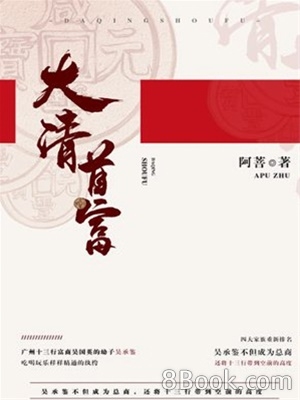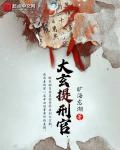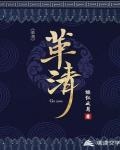Volume 3 Chapter 38: Looseness and Tightness
After the Mid-Autumn Festival, the Song Dynasty began to implement martial law from north to south.
Beacon towers were set up in Puzhou, Huazhou, Zhengzhou, Kaifeng Prefecture, Henan Prefecture (Luoyang), Shanzhou, and the part of Henan that formerly belonged to Mengzhou. The number of soldiers patrolling along the Yellow River embankment and the fleet monitoring the opposite bank of the river was doubled.
The troops in the imperial camp re-counted their headcounts, checked the inventory of all military supplies, including ordnance, food, fodder, and war horses, and conducted a unified inspection and cleanup of the forts along the river.
In Henan Province, which is located along the Yellow River, the families of soldiers, the elderly, the weak, women and children were advised to go south to the Huaihe River and Nanyang area for resettlement.
The envoys, ministers and generals from all over the country, together with the prefect of Nanyang Prefecture Yan Xiaozhong, received the imperial edict, and they worked hard to improve the defense and take action accordingly. The rest of the military and state governors in Henan also received imperial edicts issued by the palace and the capital, asking them to arrange their defenses and cooperate with the envoys, ministers and generals from all over the country. Without the order of the central government, they were not allowed to disobey.
At the same time, the imperial court sent a special decree to various places in Guanxi, emphasizing the absolute power of Yuwen Xuzhong and the special status of Li Yanxian of Shanzhou.
The transportation of materials to the southeast, Jingxiang and Huainan is also being urgently arranged.
Things seem to be going in an orderly manner, but the center still has its own worries.
After all, no matter how much preparation is made, it is just preparation. Once the Jin army attacks, who knows what will happen? Moreover, from a military strategic point of view, although the Song army has the imperial camp troops in Henan, which gives it a little confidence, it still has two huge military holes in front of it that cannot be ignored.
This is the problem with Kansai and the problem with Tokyo City.
From the Kansai side, things were too urgent and too hasty.
You have to know that in order to make good military preparations, one thing is naturally excellent soldiers, and the other is naturally complete logistics, and Guanxi does not seem to lack these... Guanxi is recognized by the world as a place of excellent soldiers, and there is also a ready-made elite seed force, that is, the more than 10,000 elite soldiers from Jingyuan Road (from this perspective, Qu Duan did do something); and the economic strength of Bashu is also unquestionable, especially Zhang Jun's bold use of Zhao Kai, his deputy in finance, who led an outstanding financial reform, making Bashu's original financial plate of more than 10 million strings of cash still bigger.
But the problem was that the Guanxi Troika had just killed Wang Xie in July and unified the military power for only a month. Before the central government made up its mind to increase taxes, a considerable part of Bashu's financial revenue was sent down the river to Nanyang... So they were not well prepared in terms of manpower, supplies and actual conditions.
It just so happened that the old rival here was Wanyan Loushi, Wanyan Nianhan's military deputy and the actual deputy military commander of the Western Route Army.
I must add one more thing here. Wanyan Loushi was a figure that could not be ignored in this era. He was also a figure that made all the Song army tremble with fear... There was no other way. Open the booklet compiled by Wang Yuan, the king's deputy, and come to the pages about this person. You will find that this person was most likely a family slave of the Wanyan family or the head of a servant tribe (the two identities are not contradictory). He fought all the way from Liaodong to Henan , and his record was truly dazzling.
The main force of the Liao Kingdom was defeated by this man who led his troops on a long journey to the battlefield to change horses, and then launched cavalry assaults on the Liao Kingdom's central army nine times in one day together with Yin Shuke; the main force of 30,000 cavalry from Western Xia supporting the Liao Kingdom was defeated by this man who continuously divided the troops and attacked; Fan Zhixu's 200,000 Western Army reinforcements were dispersed by this man and ten Meng'an; in the Battle of Taiyuan, it was he and Yin Shuke who defeated hundreds of thousands of reinforcements one by one.
It can be said that he participated in almost all the major battles during the rise of the Jin army, and was always responsible for the toughest and most difficult battles, yet he was always invincible.
It is truly invincible.
Even Li Yanxian's military miracle in Shanzhou was accomplished after he turned to Guanxi and northern Shaanxi; even in such a hurry last year, this man led his army to steadily swallow up Yan'an Prefecture and forced the surrender of the three states outside the Yellow River, which was truly impeccable.
In history, Han Shizhong and Yue Fei never encountered such a person, and it is hard to say if they had encountered him. Anyway, among the people that Emperor Zhao could use before his death, those who had encountered this person, such as Zhang Jun, Li Yanxian, Qu Duan, and Yang Yizhong, were all defeated by him... Of course, this statement is not accurate enough. The accurate statement is that these people were the remnants of Wanyan Loushi's defeated generals at that time, and they were not worthy of being called defeated generals.
At that time, tens of thousands of Song troops were defeated by the Jin army, which was mainly led by Wanyan Loushi and Wanyan Yinshu. Zhang Jun, Li Yanxian, and Qu Duan became important military officials mainly because Wanyan Loushi gathered the defeated troops after withdrawing his troops.
Not only that, this man and his old partner Yin Shuke went on continuous conquests, capturing Emperor Tianzuo of Liao, and even Yelu Dashi (who successfully escaped after serving as a guide for the Jin army for a few days)... To put it bluntly, if he had not been at the gates of Tokyo during the Jingkang Incident, this man might have achieved an unprecedented achievement in Chinese military history, that is, capturing emperors of four major countries.
Who wouldn't be worried when faced with such an opponent, who was leading the main force of the Jin army and targeting their weakest point?
As for Dongjing, there is no need to say more. Dongjing is too far forward. Once the Jin army crosses the river, it will be another siege of Dongjing. The four words "siege of Dongjing" almost made the whole Song Dynasty suffer from post-traumatic stress disorder.
So, I don’t know if it’s because they knew that Guanxi had nothing to worry about, or because they were in the middle of it, but after the entire Song Dynasty central government entered a state of war readiness, they started to make arrangements for the defense of Tokyo City, and everyone’s focus was on it.
Putting aside the inevitable panic at the beginning, as the city gradually readjusted to martial law, the city's inner and outer areas, which had recovered to a population of more than 300,000, suddenly generated an unexpected explosive force around city defense construction.
The new Prime Minister Chen Gui was undoubtedly the guardian of Tokyo and the core of the city's defense system. As the Minister of War and the Prefect of Kaifeng, he basically obtained most of the imaginable powers. So with his orders issued one after another and the unanimous cooperation of the central officials, the entire Tokyo quickly began to militarize and fortress-like based on the previous Nanyang template.
Countless coal fuels were transported from all over the Central Plains. Most of them were sunk into the newly dug artificial lake inside the Jinshui Gate of the Imperial City, and a small part was sent directly to the brick kilns outside the city where smoke was constantly burning.
The brick kilns used coal and wood from temporarily felled forests around Tokyo as fuel, producing solid bricks day and night.
This kind of bricks certainly cannot be compared with the materials used in the walls of Tokyo City, but they are enough to build simple and practical sheep and horse walls outside the city, and to build countless brick walls inside the city to form Nanyang-style partitioned military quarters, and then build arrow towers and bunkers.
The three-layer city wall was all reinforced and thickened, and the city gates with towers were completely transformed into military fortresses, with at least one du (a hundred-man team) stationed there permanently. The dozen or so water gates were the focus of defense, all of which were equipped with double-layer iron mesh sluices, and soldiers and horses sent from Liangshanpo assisted in management and disposal.
However, the most eye-catching are the three rivers that run through the city... In order to facilitate the entry and exit of reinforcements, and to continue to properly defend around the rivers after the outer city is broken, the Cai River, Bian River, and Guangji River that run through the city have been fully dredged, widened, and deepened. This work started before and has not stopped yet.
By late August, this work reached a climax. Even Emperor Zhao, who had recovered from his illness, went to the river to carry soil and dig mud with Wang De, the defender of the four walls of Bianjing, who led the troops back to the city. He also asked Madam Wu to lead a few palace maids in the palace and a group of cooks from Tokyo who were looted from the palace to boil water and cook for people on the river bank.
In this enthusiastic atmosphere, the Guangji River, which was commonly known as the Wuzhang River because of its width of five zhang in the past, has already become seven or eight zhang wide. This width is basically based on the width of the bridges on the river. It is only at the two sluices that the width is narrowed back to five zhang.
There is no need to say more about the Bian River. Looking at the "Along the River During the Qingming Festival" you will know how wide the river is. After being cleaned up, the water is even more sparkling, which is a sight that makes people sigh in admiration.
According to Chen Gui's plan, the excavated soil was used to build high dams and brick walls on the inner side of the river, and artillery positions were set up, which would then form several layers of excellent defense lines.
Not to mention the Daxiangguo Temple, which had been producing artillery carts, earth balls, stone bullets, and gunpowder bags continuously since the very beginning.
I must praise Emperor Zhao again here. This official was not sick every day before, and he did not run to Daxiangguo Temple all day just to get free food and drinks... A long time ago, with his advice and assistance, the counterweight artillery vehicles here in Daxiangguo Temple had been divided into several fixed models, and each type strived to use unified weights and measures to produce "standard accessories" that were as "standard" as possible.
The benefits of primary assembly line are self-evident.
One is naturally to improve efficiency, one is to ensure that artillery vehicles on the battlefield can be repaired quickly, and the other is to facilitate transportation.
This is Zhao Guanjia’s main project this year after his initial failure in trying artillery… It’s not high-tech, but it’s definitely practical. The key is that the benefits of doing so can be understood and recognized by everyone.
In short, the whole city was bustling with activity.
However, as the days go by, the passion fades away little by little, followed by fatigue and numbness.
Emperor Zhao started out digging river mud all day, and later ended up moving bricks all day… Sometimes, he couldn’t help but feel that being an emperor was not worthy of him. He found a job before traveling across time, but came here before he started working. As a result, he had to experience such high-intensity labor of moving bricks. Who could be more miserable than him?
And I was so tired that I had no strength at all when I returned to Yeonbokgung Palace at night... After eating the snacks sent by Concubine Pan and lying on the bed, I would basically fall asleep quickly by smelling Concubine Pan’s body fragrance.
Sometimes he also stayed at Mrs. Wu's house, and Mrs. Wu, who was also exhausted, often cried secretly in the middle of the night. I don't know if she was crying about why she married the wrong person? As a result, she had to spend half of the year boiling water and cooking, and the other half reading and practicing martial arts... At this time, even if Zhao Jiu was awake, he was completely numb and had no energy to comfort her or lose his temper.
But what comes after numbness?
The answer is expectation.
It sounds absurd, but the fact is, August has ended and September has arrived, and September is almost over... With the successful conclusion of the city defense renovation activity praised by Emperor Zhao as "forty days of hard work after autumn", it was so successful that even people like Chen Gui couldn't think of how to add anything else. Others didn't know, but Emperor Zhao actually began to look forward to it.
Looking forward to the north.
But to his disappointment, the beacon smoke was never lit and the Jin army never arrived.
Moreover, this kind of non-arrival is not false... After Ma Kuo and Ma Zichong fled into Taihang Mountains last year, they gradually began to move southward to avoid the core ruling area around Yanjing of the Jin army, but they filled the gap of Wang Yan's eight-character army and reestablished contact with Henan. According to Ma Kuo's latest intelligence, the Jin army did not even mobilize, at least the Meng'an and Mouke stationed in various places in Hebei were not mobilized.
As October approached, winter officially arrived, and Ma Kuo's latest report was still clear: the Jin army had not taken any action.
This is certainly a good thing. At the very least, it can allow Guanxi to make good use of this precious time and Sichuan's autumn grain this year to organize a large-scale army.
However, in order to prevent Henan from causing unnecessary tension and slackness due to the long-term high tension, which would then lead to the successful attack of the Jin army, Emperor Zhao, after discussing with the prime minister, the capital, and the Privy Council, took the initiative to let go of some of the tension. He ordered all places to maintain martial law while ensuring that soldiers could take turns to visit their families and take leave, and ensure normal life in the city, but to be careful of spies, raids... and so on.
After the decree was issued, it was unclear elsewhere, but a city as big as Tokyo suddenly fell into a strange state... No one knew what to do.
Winter is undoubtedly the slack season for farming, and there is nothing to do. In order to prevent spies, both military and civilian supplies are generally distributed outside the city. The city is divided into districts, and although ordinary people stay at home, it is difficult for them to easily enter and leave the districts... Families with able-bodied men and soldiers can directly receive a ration and a portion of coal (basically everything), but they have to pay for sauces, linen and the like from the government.
In other words, business activities have basically stagnated... As a result, people naturally feel panicked.
In this regard, Emperor Zhao could only follow the routines in some high-end online articles and let these people organize Cuju teams and wrestling teams according to the military quarters. Fortunately, Cuju does not take up much space these days, and Cuju fields can be set up in sections on the Imperial Road and East-West Street, allowing each quarter and army to open on odd and even days in turn to participate in Cuju and sumo.
However, this situation continued for another month, including dealing with all kinds of imaginable and unimaginable things such as reselling sauces at high prices, official laziness, Cuju fights, etc.
By November, the Jin army was still silent.
At this time, Emperor Zhao had already further opened up the outside of Tokyo City... generally, he would open the gates of several military districts together, dividing the entire city into seven or eight independent large areas and small cities for activities... and he could no longer hold back.
In fact, at this time, various rumors had already spread. Most of the people said that the Jin people dared not go south after the battle of Yanling-Changshe last year; while the officials and many students who had just joined the Imperial College were talking about it, saying that the crown prince of the Jin people had died, and the sons of the former Taizu Aguda and the sons of the current Wolf Lord Wanyan Wuqimai were fighting for the throne.
The latter has definite evidence. As early as the Mid-Autumn Festival in August, the Central Government accidentally learned this information from a Goryeo merchant, saying that the crown prince of the Jin Dynasty, Anban Bojilie Wanyan Xieye, had been seriously ill before, and then he died without resting in the autumn. Then, the Central Government immediately sent Wang Lun, the Junior Secretary of the Honglu Temple, to quickly detour to Goryeo from the east to find out the information.
Now, after three months, Wang Lun successfully returned and fulfilled his mission. He confirmed the death of Wanyan Xieye and the fact that the Jin people seemed to be having an internal struggle for the throne.
But to be honest, Wanyan Xie was so important that Emperor Zhao and several ministers were skeptical. Moreover, the Jin army had never given up marching south in the autumn and winter because of the death of important figures or internal disputes, so the central government still had no intention of changing its course.
In contrast, Liu Ziwu, who was the chief of the Privy Council and concurrently the military advisor of the Ministry of Personnel, put forward a view. He believed that it might not be just the result of the battle of Changsha last year, but it was very likely that the strict military control and arrangements of the Song Dynasty after the Mid-Autumn Festival had the effect of defeating the enemy without fighting.
This does make sense, but no matter what, everyone thinks that the Jin army probably won't come this year.
Zhao Jiu and the ministers would certainly not relax on this, but they could not suppress the increasingly active morale and loose atmosphere among the people.
Many people began to suggest opening the city on a small scale and restoring a certain amount of commercial circulation... Their reasons were very sufficient. During the previous period of large-scale and strict martial law, there were solid examples of many city defense soldiers and handover officials enriching themselves and neglecting people's livelihood, and the people had a hard time.
At first, Emperor Zhao and the ministers did not agree. But as more and more people wrote petitions to the emperor, and as cases of laziness and corruption due to the city closure increased, and some people had begun to suggest lifting the patrols of able-bodied men and completely relaxing the isolation of military quarters, the central government, under pressure, temporarily agreed to a plan to open the city on a small scale and allow reliable caravans to enter.
Facts have proved that commercial activities are the key to urban residents. As the city gates were opened on a small scale and commercial activities resumed, the city of Tokyo almost quickly regained its vitality, and things like able-bodied men and military workshops seemed insignificant.
But as the city regained its vitality, some messy things began to emerge again... In late November, an official formally submitted a petition, requesting the establishment of a queen on the grounds that the time was special and the royal family needed to appease the people's hearts.
Once this was said, it immediately triggered a chain reaction. Many bored officials followed suit, and the imperial desk was instantly filled with petitions for the establishment of a queen. Later, even the common people and students in the capital sent petitions to the military square gate to request the establishment of a queen, asking for them to be forwarded . That was not all. Since the entire Henan Province was under military control, most of the information was forwarded from the military, so soon military officers inside and outside the city directly submitted secret petitions to the emperor, requesting the establishment of a queen.
Before I knew it, this incident had developed into a winter trend in Henan.
To be honest, Emperor Zhao and several ministers were a little confused.






